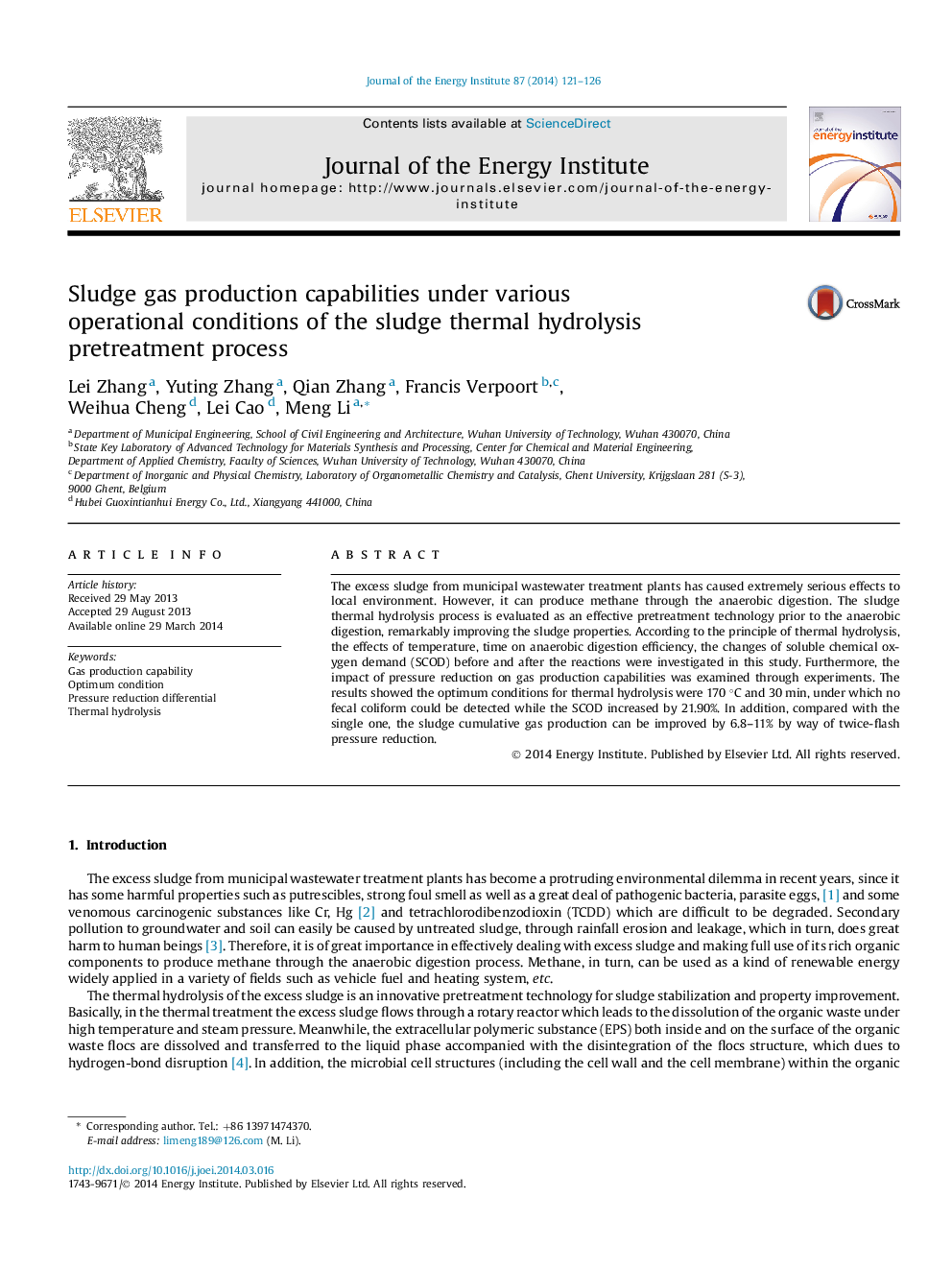| Article ID | Journal | Published Year | Pages | File Type |
|---|---|---|---|---|
| 1747729 | Journal of the Energy Institute | 2014 | 6 Pages |
The excess sludge from municipal wastewater treatment plants has caused extremely serious effects to local environment. However, it can produce methane through the anaerobic digestion. The sludge thermal hydrolysis process is evaluated as an effective pretreatment technology prior to the anaerobic digestion, remarkably improving the sludge properties. According to the principle of thermal hydrolysis, the effects of temperature, time on anaerobic digestion efficiency, the changes of soluble chemical oxygen demand (SCOD) before and after the reactions were investigated in this study. Furthermore, the impact of pressure reduction on gas production capabilities was examined through experiments. The results showed the optimum conditions for thermal hydrolysis were 170 °C and 30 min, under which no fecal coliform could be detected while the SCOD increased by 21.90%. In addition, compared with the single one, the sludge cumulative gas production can be improved by 6.8–11% by way of twice-flash pressure reduction.
